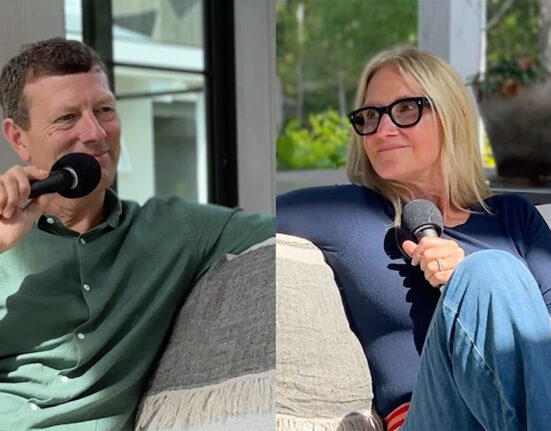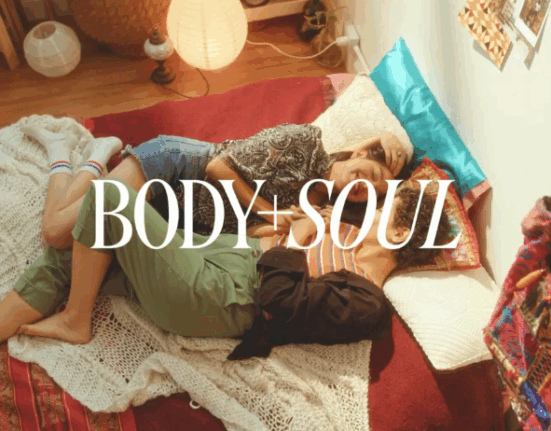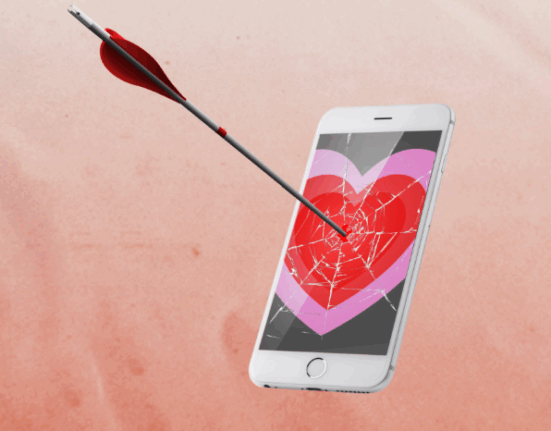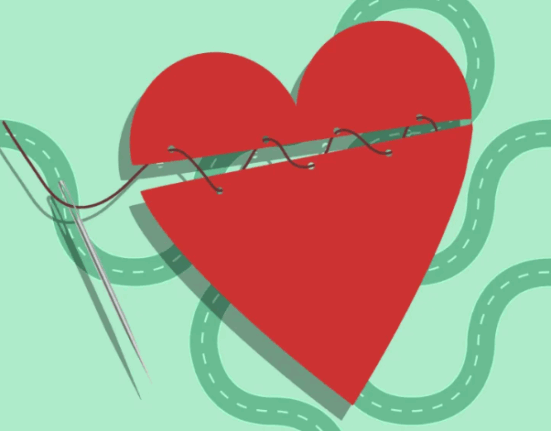Last Updated on September 15, 2025 by Rachel Hall
7 Clear Signs of an Unhealthy Relationship (How to Recognise the Signs Early)
Relationships are one of the most important aspects of life. They provide love, connection, support and a sense of belonging. Yet, while every relationship has ups and downs, there comes a point where normal disagreements slip into damaging patterns. At that point, the bond has become an unhealthy relationship.
The trouble is that many people do not immediately recognise the signs. It is easy to dismiss warning flags as quirks, stress, or something you should “just live with.” But understanding the unhealthy signs early on can prevent lasting damage to your confidence, your well-being, and even your safety.
This article explores what makes a healthy relationship, the key signs of an unhealthy relationship, and what to do if yours becomes unhealthy. We will also examine practical steps you can take to protect yourself and support a loved one who might be struggling.
- What Defines a Healthy Relationship vs. an Unhealthy Relationship?
- 7 Key Signs a Close Relationship Is Unhealthy
- Early Warning Signs Before It Becomes Abusive
- The Impact of an Unhealthy or Abusive Relationship on Mental Health
- What to Do if You Suspect Your Relationship Is Unhealthy
- How to Safely Leave an Abusive Relationship
- Helping a Loved One in an Unhealthy Relationship
- FAQs About Healthy vs. Unhealthy Relationships
- Conclusion: You Deserve to Feel Safe in Your Relationship
What Defines a Healthy Relationship vs. an Unhealthy Relationship?
A healthy relationship is one in which you feel respected, valued and safe. You can express yourself freely, your boundaries are honoured, and your independence is celebrated. You are able to trust your partner or family member without fear of betrayal.
By contrast, an unhealthy relationship relies on control, secrecy and power imbalances. This sort of unhealthy behaviour may include constant criticism, attempts to manipulate your emotions, or efforts to isolate you from friends and family. Instead of supporting you, the relationship drains you.
| Healthy Relationship | Unhealthy Relationship |
| Good communication | Silent treatment, guilt-tripping |
| Mutual respect | Disrespect, criticism, belittling |
| Shared independence | Possessiveness, jealousy, attempts to keep tabs |
| Trust and honesty | Lies, cheating, and hiding sensitive information |
| Feeling secure | Intimidation, fear, abuse |
Every relationship is different, but when a relationship shifts from respect to power and control, it is moving into dangerous territory.
7 Key Signs a Close Relationship Is Unhealthy
1. Constant Criticism and Belittling
Everyone can be irritated now and then, but constant criticism is not a “normal human emotion” in a loving bond. If your partner regularly belittles you, mocks your decisions, or makes jokes designed to make you feel bad, it is a sign of emotional abuse.
These behaviours may be expressed in subtle or passive-aggressive ways, such as sarcasm or backhanded compliments. Over time, such disrespectful comments chip away at your confidence, leaving you questioning your worth.
2. Possessiveness and Control
While jealousy is a normal human emotion, when it escalates into possessiveness, it is no longer harmless. Signs include a partner insisting on constant contact, wrongly accusing you of flirting, or demanding to know where you are at all times.
Possessiveness is often framed as love, but in reality, it is an attempt to control you. This can quickly spiral into monitoring your phone, checking your messages, or asking for access to passwords — all attempts to keep tabs on your private life.
3. Manipulation and Guilt-Tripping
When a partner uses tactics to manipulate your decisions or emotions, you are no longer free within the relationship. They may convince you to do things you do not want to do, or make you feel responsible for their actions.
This sort of behaviour may be expressed in subtle or passive-aggressive ways, such as sulking when you say “no”, or threatening to hurt their feelings if you refuse. These are not signs of love but strategies of power and control.
4. Isolation From Friends and Family
An unhealthy partner may try to cut you off from your support network. They may discourage you from spending time with a loved one, a family member, or your circle of friends and family. Sometimes this looks like wanting to spend more time “just the two of you,” but over time, this isolation reduces your independence and makes you easier to control.
Being distanced from your relationships with family or friends is a major warning sign, as it increases dependence on the abuser.
5. Sabotage and Betrayal
Some partners engage in sabotage, which may include spreading rumours, leaking sensitive information, or actively trying to undermine your success. Others act in an intentionally dishonest way, becoming disloyal, lying, or cheating.
If your partner frequently acts in ways that are intentionally harmful or deceitful, it demonstrates a lack of respect and commitment. This sort of betrayal destroys trust, which is the foundation of any healthy relationship.
6. Abuse: Verbal, Emotional, or Physical
Not all abuse is physical. An abusive relationship can begin with verbal insults or disrespectful name-calling before escalating into physical violence or even sexual assault.
Forms of domestic abuse include:
- Verbal abuse (shouting, name-calling, constant criticism)
- Emotional abuse (gaslighting, guilt-tripping, intimidation)
- Physical abuse (hitting, pushing, shoving, threats of harm)
- Sexual assault (forcing sexual activity without consent)
These abusive behaviours are about power and control. They are not about anger, love, or mistakes — they are deliberate acts intended to dominate and cause harm.
7. Walking on Eggshells
If you constantly feel like you must walk on eggshells around your partner to avoid anger or conflict, it is a serious warning sign. Healthy love should make you feel safe in your relationship, not fearful.
This dynamic often involves intimidation — slamming doors, making threats, or trying to get their way through fear. If you cannot relax or feel comfortable being yourself, the relationship is not healthy.
Early Warning Signs Before It Becomes Abusive
Not every relationship is perfect, and small disagreements are normal. But early unhealthy signs should never be ignored. An obsessive partner demanding constant contact, someone wrongly accusing you of flirting, or a partner who regularly tries to make you feel bad are warning signals.
Left unaddressed, these red flags often escalate into domestic violence. It may start with jealousy, then grow into controlling behaviour, and finally physical abuse. Learning to recognise the signs before this progression can save your safety and well-being.
The Impact of an Unhealthy or Abusive Relationship on Mental Health
Remaining in an unhealthy or abusive relationship has serious long-term consequences. It affects your mental health by increasing anxiety, depression, and feelings of worthlessness. It can make you question your judgment and lead to social withdrawal.
Physically, stress from ongoing abuse can manifest in insomnia, headaches, or chronic illness. Emotionally, you may lose your independence, especially if you are cut off from friends and family.
Remember: if a partner constantly criticises, controls, or makes you feel bad, this is not simply an “argument.” It is a pattern of abusive behaviours.
What to Do if You Suspect Your Relationship Is Unhealthy
Self-Reflection and Recognising the Signs
Pay attention to your instincts. If something feels wrong, it probably is. Journaling your experiences or confiding in a loved one can help you see patterns of unhealthy behaviour more clearly.
Setting Boundaries in a Healthy Relationship
In a truly healthy relationship, boundaries are respected. Being able to say “no” without fear of retaliation is essential. If your partner responds with subtle or passive-aggressive ways or attempts to manipulate you instead, the relationship may be unsafe.
Seeking Support and Creating a Safety Plan
If you believe you are experiencing domestic abuse, building a safety plan is vital. This can include:
- Contacting the National Domestic Violence Hotline for guidance
- Reaching out to supportive friends and family
- Setting aside emergency funds or important documents
If you are in immediate danger, call 999.
How to Safely Leave an Abusive Relationship
Leaving an abusive relationship is often the hardest but most necessary step. Abusers may try to control you with fear, threats, or manipulation. But with the right support, you can take back your independence.
Practical steps include:
- Working with professionals to create a safety plan
- Contacting local domestic abuse charities or shelters
- Preparing financially before you are ready to leave
Never forget: domestic violence is never your fault.
Helping a Loved One in an Unhealthy Relationship
If someone you care about is showing unhealthy signs in their relationship:
- Listen without judgment.
- Remind them that no abusive behaviours are ever acceptable.
- Avoid blaming them or telling them what to do.
Sometimes it takes several attempts before someone feels ready to leave. Your patient support can make the difference.
FAQs About Healthy vs. Unhealthy Relationships
Can an unhealthy relationship become healthy again?
Yes, but only if both people acknowledge the unhealthy behaviour and commit to change. If there is ongoing abuse, the safest option is to leave.
What is the difference between toxic and abusive?
“Toxic” refers to damaging dynamics, while abusive implies deliberate harm, intimidation, and power and control.
Is jealousy always a problem?
Jealousy is a normal human emotion, but when it grows into possessiveness or attempts to keep tabs on you, it becomes dangerous.
Conclusion: You Deserve to Feel Safe in Your Relationship
Every person deserves a healthy relationship built on trust, respect and support. If your relationship has become an unhealthy or abusive relationship, you are not alone.
Call the National Domestic Violence Hotline on 0808 2000 247 if you need help in the UK, or 1-800-799-SAFE in the US.
Remember: real love does not make you feel bad, try to control you, or belittle you. You deserve respect, safety, and happiness.

Rachel Hall, M.A., completed her education in English at the University of Pennsylvania and received her master’s degree in family therapy from Northern Washington University. She has been actively involved in the treatment of anxiety disorders, depression, OCD, and coping with life changes and traumatic events for both families and individual clients for over a decade. Her areas of expertise include narrative therapy, cognitive behavioral therapy, and therapy for traumatic cases. In addition, Rachel conducts workshops focusing on the psychology of positive thinking and coping skills for both parents and teens. She has also authored numerous articles on the topics of mental health, stress, family dynamics and parenting.








Leave feedback about this